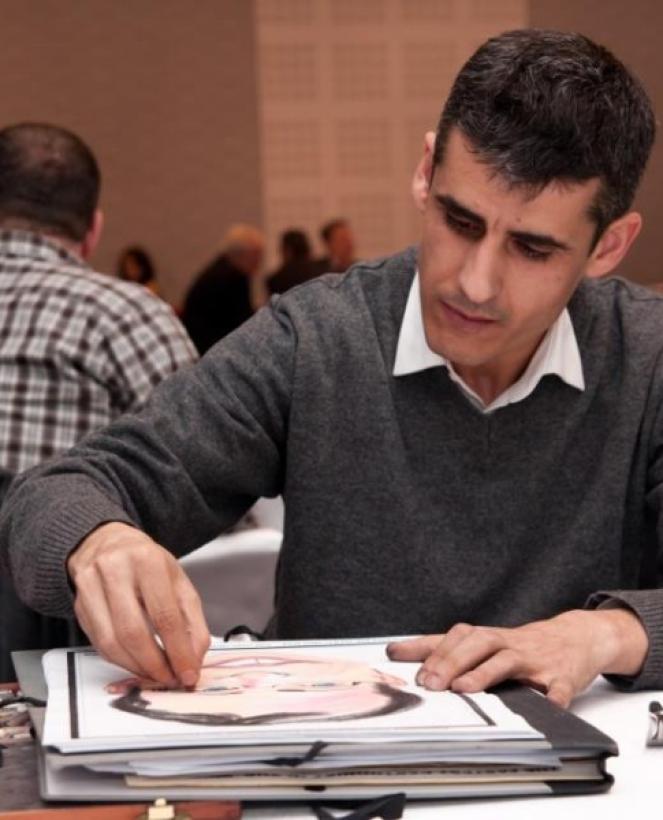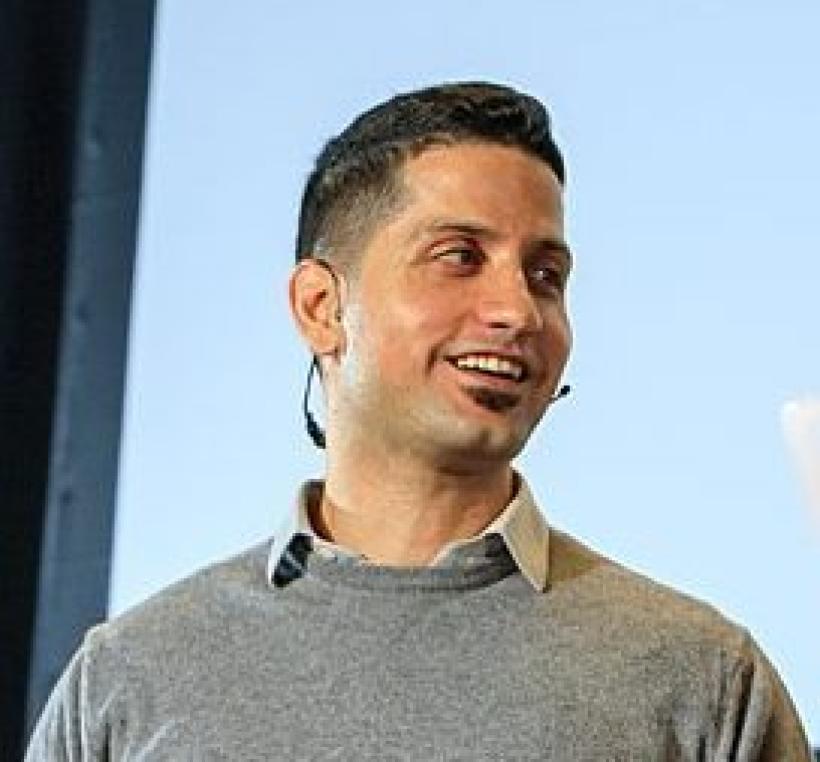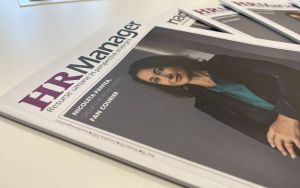I courteously, and willingly, accepted the invitation, though was a bit reluctant regarding the end result. These conferences are usually a closed circle, where a select audience of “IT connoisseurs” is invited. This audience encompasses mainly the heads of IT in the sector/industry where information technology plays a pivotal role in everyday business. The major companies on the Romanian soil were represented: Microsoft, HP, KPMG, Danone, etc.
The conference intent’s was to debate, through a series of presentations and panels, the future of IT and IT professionals with the advent of the “Cloud” and “Cloud services”. The “Cloud”, and its services, has gradually evolved to represent a potential threat to the IT industry landscape as IT professionals know it today.
In a nutshell, the “Cloud” is what we access every day, via our favorite Web browsers (e.g., Chrome, Firefox), to receive, read and send e-mails (e.g., Gmail or Yahoo mail). The service, in this case, is the email. Other Cloud services allow us to share photos (e.g., Flickr), videos (e.g., YouTube) and our everyday life (e.g., FaceBook). The “Cloud” is the actual hardware (computers and hard drives) where our emails, photos, videos and sometimes “life” are saved. We access that “Cloud” hard-drive remotely via the Internet.
We might wonder how can such apparently benign services, some that have existed a long time now, be shaking the foundations of a whole industry. The answer is simple economics; the reason is the intersection between an economical crisis and an affordable technology.
On the one hand, we have a worldwide economical crisis that has been on-going since 2008. The latter has put tremendous pressure on organizations as a whole, pushing them to reduce operating costs, capital expenditures and efficiently use resources.
On the other, we have cheaper, better performing hardware and broadband connectivity. These factors made the “Cloud” economically viable in terms of costs and ergonomically usable in term of accessibility.
In sum, cheap "Cloud" meets low-budget. This means that services once offered by the IT Department are now being offered by external (exogenous) entities outside the realm of the organization. The tsunami of outsourcing has just hit the CIO’s both flanks. Software, platforms and even the whole IT infrastructure are now being offered as a service hosted on the “Cloud”. These “Cloud services providers” are capable of eventually rendering the IT Department obsolete. On the brink of extinction, CIOs found safety in numbers and gathered around Yugo Neumorni, CIO Council President, to discuss “the future of IT, the future of [their] profession”.
The conference started with an affable welcome speech, by the president himself, followed by a keynote presentation laid out by Radu Puchiu, the state counselor to the prime minister at government of Romania. The first, presentation to catch my eye was that of Felix Enescu.
The “Cloud” is a “glorified electric plant” – Felix Enescu
Mr. Enescu, a witty speaker, drew a parallel between the global and Romanian IT strategies and technologies. He also presented a survey of the Romanian IT industry. Noteworthy, was his underlining the fact that only 5% of the IT staff in Romania had business experience.

Next was Oana Datki discussing the HR view of the IT sector. The findings presented were interesting, though the presenter and presentation lacked clarity and structure.
“Not everyone thinks well” – Adrian Stanciu
The dark horse of the conference was Adrian Stanciu. He spoke about the factors defining the balance between values vs. rules inside an organization.
Mircea Ţiplea, a veteran CFO and very good speaker presented the business perspective of the CIO vs. CFO struggle. His vantage point and financial savvy was a refreshing and educating for a technology crowd.
“A stakeholder is whomever can ruin your day” – Mircea Ţiplea
“Supply chain mismanagement is the number one reason GMs are fired” – Mircea Ţiplea
“Discounted cash flow is the one thing operation managers should understand to foresee higher management's decisions” – Mircea Ţiplea
The panel was technical and so was everyone. Hence, the value added was infinitesimal. It did not tackle the imminent non-technical issues the CIO will be facing in the future; i.e. “Could service providers”.
The upside of the panel was Lucian Mândruţă, the moderator. He pulled out a very good job in keeping us attached with the Panel. We also learnt from him about a different type of Cloud, called Charlie Bravo. A term used in aviation to refer to Cumulonimbus clouds. The letters CB being the meteorological symbol for Cumulonimbus, and in the ICAO (International Civil Aviation Organization) phonetic alphabet CB becomes Charlie Bravo.
“Technical people tend to think in terms of what they will lose and not what they will win”
An interesting intervention was from someone in the public, who asked about the meaning of life for a CIO. “We spent so many hours at the dorms at night solving complicated problems, preparing for math Olympiads, we went through the roughest academic curriculum and we solved endless complicated problems in our daily work, just to end up extinct”.
There was a notable female absence within the group of IT geeks’ community. A good thing Aurelia Costache was there. Her presentation on the "Bring Your Own Device" pilot they did in KPMG, was both instructive and enjoyable. It is always good to know that KPMG selected Romania to be the first country on such a pilot. I am sure the presence of Aurelia Costache helped make that decision.
Then came Bogdan Tudor. His presentation was quick, at the end a bit too quick, though refreshing creative and enterprising.
“ROM – Return On Money” – Bogdan Tudor
“SINS – Selling Is Not Stupid. Sales guys are not lower life forms” – Bogdan Tudor
“Leadgement – Leadership and Management” – Bogdan Tudor
The last presentation was from Danone CFO, Aurelian Sin. Mr. Sin encompassed and summed up quite elegantly most of the elements discussed during the day. His presentation was coherent and quite exhaustive. His presentation skills are to be praised.
“Googling IT positions I found: Chief Listening Officer” – Aurellian Sin
“Is there a user manual or training handbook for Facebook? Then why do we need to write documentation and manuals? Because our products are not user-friendly enough” – Aurelian Sin
One last notable thing is that all the power point presentations were in English. Still, everyone was presenting them in Romanian, which bemused part of the public. In particular, one of the attendees, which had an interpret loudly and lively translate each speech in English.
The aftermath of the conference was positive after all. I did not dwell, most of the time, into my tablet PC looking for some intellectual solace. All in all, I am looking forward for next year’s conference hoping they would take some of that feedback and implement it.
Still, most the CIO speakers avoided talking about the real problem. As if doing so, one could eventually get rid of it. They eluded the fatidic question: “to be or not be a CIO”. As Hamlet pondered upon death looking at that skull, so must have been done in the context of such a conference. Yes, the threat is real, extinction not far away. My best advice today is Darwinian: “adapt or die”.
Most of the CIOs present were entangled with the idea that a CFO might be absorbing their current position. Some of them were even eyeing the executive seat as means to an end; a more glorified end of a once-upon-a-time we had CIOs. The CIO-now-entrepreneur was another version of a possible adaption in the form of a mutation.
If C-suite cannibalism is what a CIO is envisaging as a probable misdemeanor, they might just as well consider the Operating side. In fact, it is extremely plausible that the emergence of “Cloud service providers” would make the COO gradually replace the CIO. That direction is more likely to be taken than any other one. The Operating Officer day-to-day activities already cover similar, but less technical, aspects as those of an IT Officer. If the “Cloud service provider” could take care of the technical details surrounding the CIO tasks, then the COO would just have to extend their arm into a larger army.
Thus, the plot is getting thicker as the CIO luck is getting sicker. Yet, not all things are dark when it comes to the CIO evolution. There is no argument that the “Cloud”, and its services, epitomizes the future. If you are a CIO, better accept that simple truth and adapt intelligently. Changes were met in the past and they shall be in the future. The ERP movement a decade ago echoes what the “Cloud” is today. ERPs went ahead regardless of the resistance that organizational groups have opposed it. CIOs must embrace the “Cloud transition” as your “own child” now and they shall find redemption.
The “Cloud” with its myriads of diverse technical offerings is still a beast to tame. A CIO can benefit from that guide their business into a more prosperous land. There the technical ingredients the Cloud services offer are mixed together into an haute-cuisine of products and services. This new menu of diverse services will ultimately help a business-focused company.
As a matter of fact, the Andy Warhol 15 minutes of fame will soon apply to most of the IT services and products. In such a landscape, nibble services rapidly adjusting to the short attention span of generations Y and Z, are a must. As more and more companies are being absorbed by the Internet and its social whirlpool, the need for captain guiding your ship is essential. Such a captain needs to have perspective and experience in technology. Someone with CIO skills focusing more on strategy rather than operations can fill those captain’s shoes. Thus having the CIO guide companies through the stormy waters of fickle clients and ever changing technological foreground, is instrumental.
In sum, instead of mutating into an entrepreneur or a CEO, instead of being cannibalized by the COO (or CFO), a CIO can assume a more strategic role. Slowly moving out of operations and keeping his C title is an option. IT&C companies have a Chief Technical Officer. This role is less common in other sectors of the industry. A CIO can assume the role of a CTO where it does not exist. Dealing with technology’s evolution and its strategic repercussions, the CIO-now-CTO will play a pivotal role in helping their company’s business. Creating an imperceptible mesh of IT/social services and delivering them at the speed of thought.
 Bassam Gemayel holds an Executive MBA from ESCP Europe and is the Country Manager for Jinny Software Romania. He arrived to Romania in 2008 and grew fond of Romania and Romanians. As such, he was a TEDx speaker in 2009, starting a micro-social evolution he dubbed "quantum social change" and has been hosting the event since. Following up to that he was invited by Catalin Stefanescu to his show emblematic of a Romanian cultural elite "Garantat 100%".
Bassam Gemayel holds an Executive MBA from ESCP Europe and is the Country Manager for Jinny Software Romania. He arrived to Romania in 2008 and grew fond of Romania and Romanians. As such, he was a TEDx speaker in 2009, starting a micro-social evolution he dubbed "quantum social change" and has been hosting the event since. Following up to that he was invited by Catalin Stefanescu to his show emblematic of a Romanian cultural elite "Garantat 100%".





